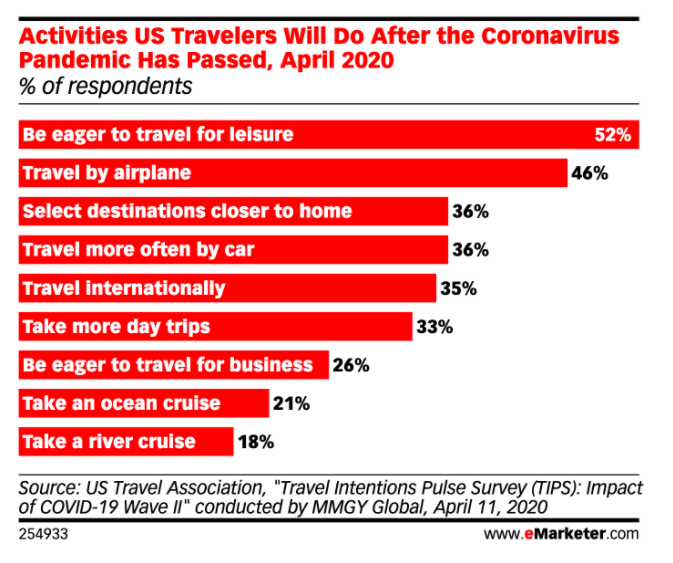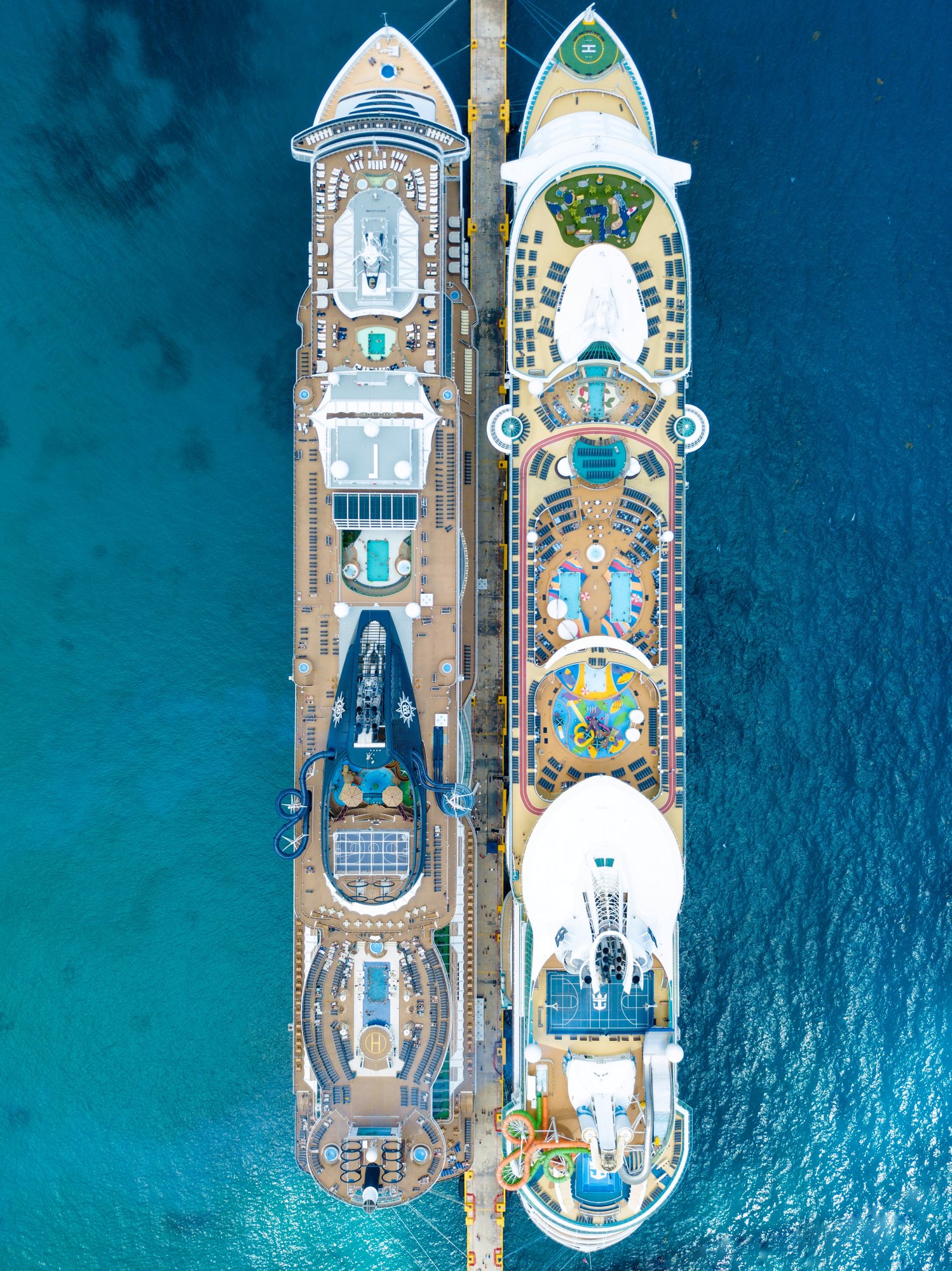Earlier this week, the CDC issued a "Framework for Conditional Sailing Order" to introduce an approach for the safe resumption of passenger cruises. The order is a first step towards resuming passenger operations and protect travelers. But when will travelers feel safe enough to cruise again?
Meeting the Ever-Changing COVID Environment Head On
The novel COVID-19 virus has impacted just about every aspect of life in 2020 (and, likely, beyond), but one of the hardest-hit sectors is the travel industry – and more specifically, the cruise industry.
To meet this crisis head on, it is essential that the industry understand current challenges, consumer trends, and passenger attitudes, as well as how they may affect their decision making in the future. The goal is to be proactive rather than reactive when addressing public concern around health and safety issues on board cruise ships, while keeping travel top-of-mind from a consumer standpoint.
Predicting Future Travel Consumer Behavior
While it’s difficult to make any solid predictions about the future given the ever-changing nature of this situation, one US Travel Association survey sheds light on how consumers believe they’ll behave subsequent to the pandemic:

This, however, is predicated on the travel industry addressing its consumers’ most pressing concerns. There is an expectation for even stricter health and safety measures – including robust screenings – and tighter controls around sanitation procedures. Additionally, cruisers expect well-planned, well-executed emergency response protocols to be in place, and that’s not likely to change in the future.
Aside from the implementation of more stringent screening and monitoring procedures, consumers will expect things like regular inspections, extended onboard medical facilities and broader access to medical professionals.
Again, barring the widespread availability of a proven vaccine, there's no fail safe way to predict how consumers will behave in the future. But the industry can and should address as many of their COVID-related concerns as possible now, and clearly communicate evidence of these precautions in advertising campaigns.

Keeping cruisers engaged and informed
In Q1 2020, cruise line operators slashed ad spending in response to COVID-19, cutting budgets by $12 million to $15 million per week in January and the first week of February, and $1.2 million per week during the second half of March 2020.
Even with these severe cuts, the industry can and must continue to engage passengers and stay relevant with targeted marketing, and by addressing the crisis within the community, as did Carnival when they turned their ships into medical facilities.
The fact is, travel restrictions will lift, even if we don’t currently have a timeline. This is why it’s crucial for the industry to employ consistent advertising strategies in the immediate future to keep cruise travel top-of-mind for passengers. Instead of going dark, brands should view advertising now as an investment that will support a faster resurgence post-COVID.
But which advertising strategies are likely to be most effective in the age of COVID? Not surprisingly, ad copy that specifically emphasizes enhanced measures cruise liners are currently taking to keep passengers safe and healthy is most effective.
Ad campaigns should highlight specific safety and cleaning procedures including:
- Mask mandates
- Required COVID-19 testing previous to boarding the ship
- Regular passenger temperature checks
- Limitations on the number of passengers allowed in communal areas and the implementation of virtual muster drills
- Use of no-touch technologies
- Frequent and consistent cleaning and disinfecting protocols
- Discontinuation of buffets
- A staggered approach to disembarkment at ports.
To further ameliorate passenger concerns, cruise liners should work in tandem with national and worldwide health organizations to meet the most current guidelines and standards. They should also look to reputable institutions like Cruise Lines International Association (CLIA) for resources and direction. And marketers should communicate how they are working with these organizations in their ad copy.
Cruise liners should also be prepared to advertise and offer bonus credits (generally 110-125% of the booking amount) and nonrefundable FCC’s (Future Cruise Credits), which act like gift certificates towards future travel. This is important given that, according to a CLIA survey, 82% of cruisers plan to book a cruise for their next holiday, and approximately 76% of passengers opt for a credit over a refund.
The good news in digital travel sales
While digital travel sales aren’t expected to reach pre-COVID levels until 2022, they are expected to grow by 49.7% that year to reach $208.8 billion in the United States. And in 2021, the industry predicts strong growth post-vaccine to the tune of 21% as people are rebooking canceled cruises (though it may be more difficult to attract first-time passengers).
Review site, CruiseCritic.com, surveyed 4,600 customers wherein passengers said they plan to continue to book cruises at the same rate as pre-pandemic levels once COVID-19 has been eradicated. (Only 24% of respondents said they would book fewer cruises.) Additionally, evidence suggests a greater interest in booking travel to popular cruise destinations like Europe, Alaska and the Caribbean.
Once the pandemic is over, 70% of consumers say they would characterize their spending habits as “cautiously extravagant” in purchasing items related to activities, leisure, vacation and holidays. 85% of existing passengers say they will book again, and 88% said COVID-19 isn’t a significant deterrent in terms of booking their next cruise.
Industry leaders like Frank Del Rio (CEO of Norwegian Cruise Line) are encouraged by these numbers saying, “People are booking. People are confident we’re going to come back. People do want to cruise. They miss it. It’s a heck of a vacation experience, a heck of a vacation value.”
Connect Digital Growth Travel Specialists
At Diaz & Cooper, we understand how a great customer experience will grow your web revenue, even in these uncertain times. Our growth-driven design, conversion rate optimization, and digital marketing programs focus on the Customer Value Journey to create a predictable system for growing your bookings online. Let’s connect today so we can show you how we’ll transform your website into your best salesperson.



